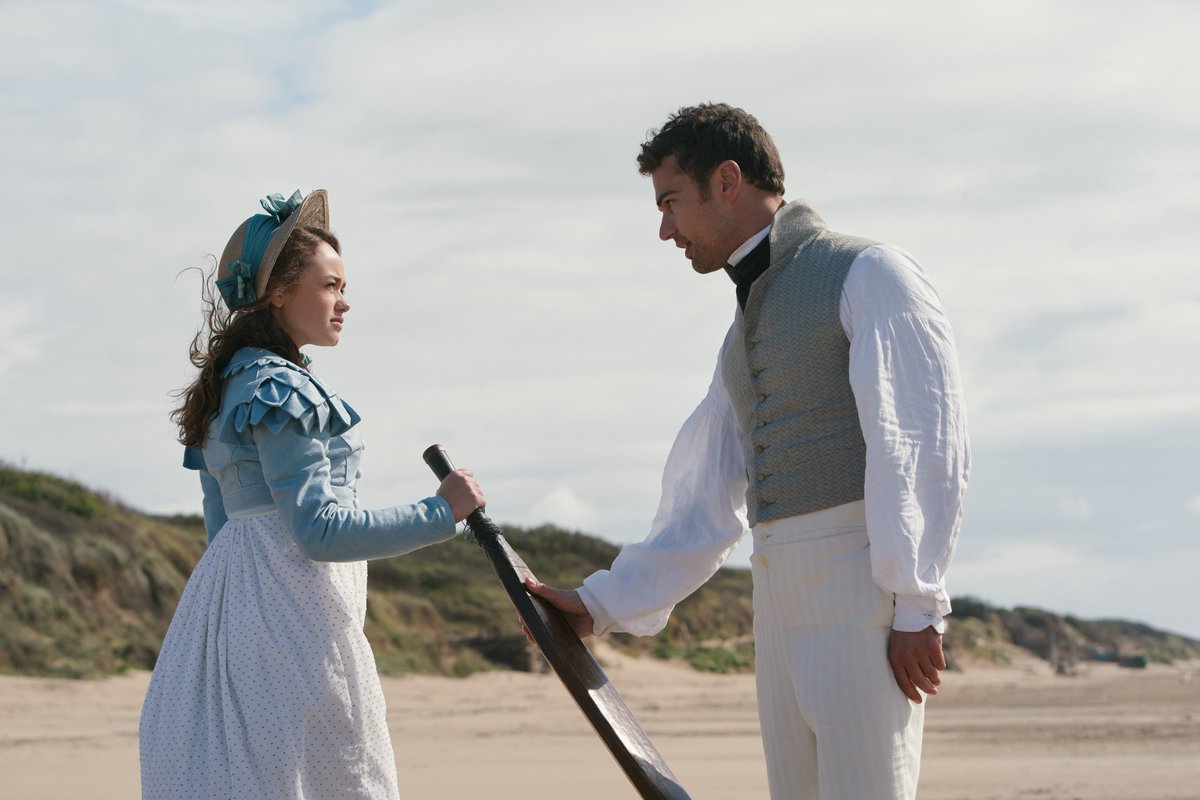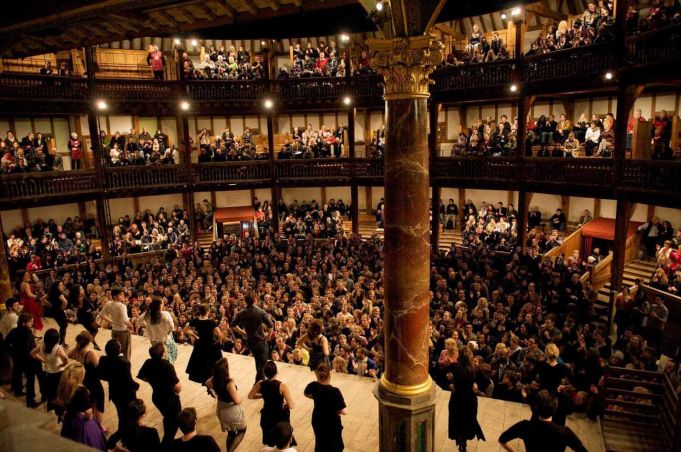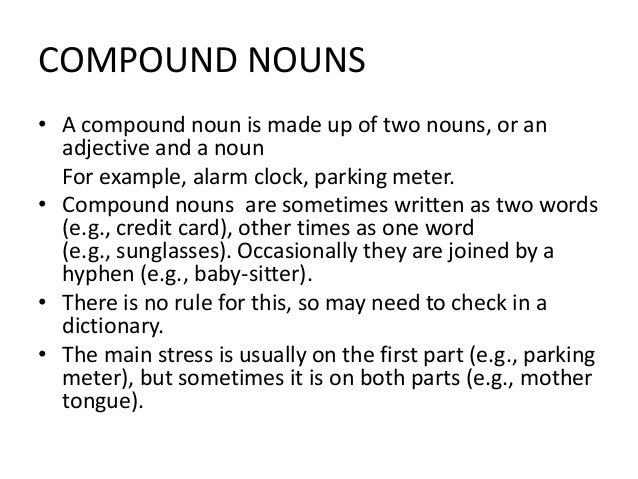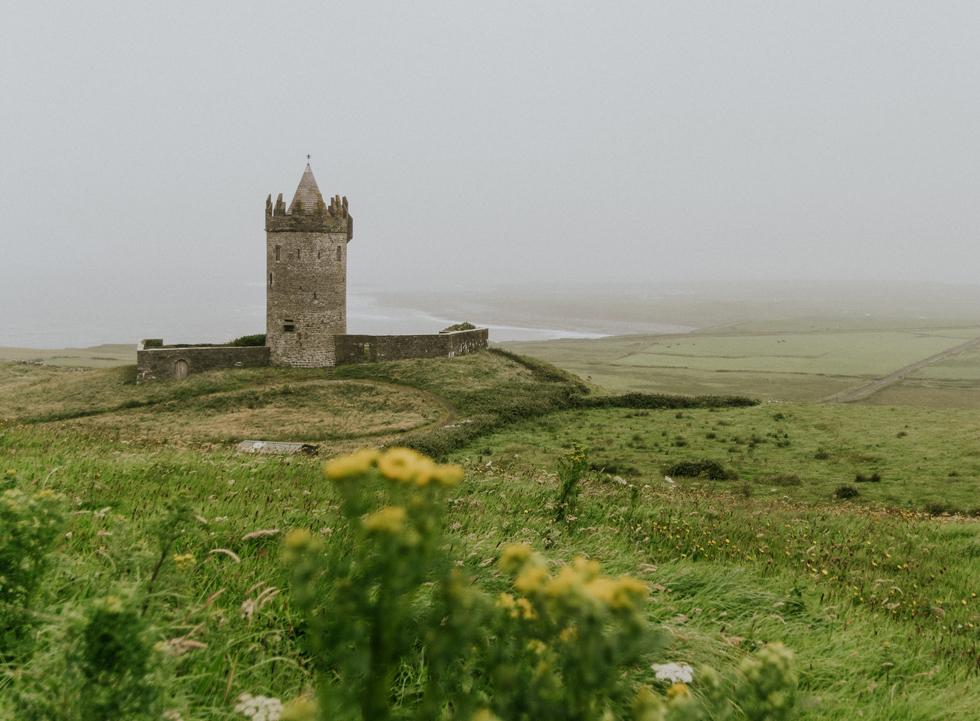
Tuesday, 31 December 2019
Monday, 30 December 2019
I WISH YOU TIME
I don't wish you all sorts of gifts.
I just wish you, what most people don't have:
I wish you time to be happy and to laugh
and if you use it well, you can make something out of it.
I wish you time for your doings and thinking,
not only for yourself, but for others too
I wish you time - not to hustle and run,
but time to learn how to be happy.
I wish you time, but not only time to spend away
I wish that some of it may be left for you
as time to marvel and to trust,
instead of just looking at the time on your watch.
I wish you time to reach for the stars,
and time to grow, that means to mature.
I wish you time to hope anew and to love.
There is no sense in putting this time off.
I wish you time to find yourself,
to find happiness in each day and each hour.
I wish you time also to forgive.
I wish you time to live!
Elli Michler
Thursday, 26 December 2019
A TUDOR FEAST AT CHRISTMAS
Here you can
read about the foods enjoyed by the
upper classes in Tudor England. Read another interesting blog post here.
Now let's watch a documentary about a Tudor feast as it would have been over 400 years
ago.
Labels:
Christmas,
Literature,
The Renaissance,
Tudor England
Tuesday, 24 December 2019
Sunday, 22 December 2019
Saturday, 21 December 2019
SANDITON



Jane Austen's final, unfinished novel “Sanditon” has
been adapted for the small screen recently. Written just months before the
author died in 1817, the story centres around Charlotte Heywood, her unexpected
trip to a posh coastal resort town, and her relationship with a gorgeous young
man named Sidney Parker. Jane Austen only finished eleven chapters of the
story, but her original text has been extended into an eight-part miniseries.
Even if it isn't as impeccable as “Pride and Prejudice” or “Persuasion” miniseries
or movies, I love “Sanditon”!
Labels:
Jane Austen,
Literature,
Novels,
Sanditon,
The Romantic Age,
TV series
Monday, 16 December 2019
HAPPY BIRTHDAY, MISS AUSTEN!
Jane Austen was born on 16 December 1775, in Steventon, Hampshire, England. While not widely known in her own time, Jane Austen's novels of love among the landed gentry gained popularity after 1869, and her reputation skyrocketed in the 20th century. Her novels, including "Pride and Prejudice" and "Sense and Sensibility,", are considered literary classics, bridging the gap between romance and realism.
“You must be the best judge of your own happiness.”
Sunday, 15 December 2019
MY SUNDAY MOVIE - CLUELESS
I
have just discovered this 1995 American comedy film based on the
novel Emma.
Jane
Austen might never have imagined that her 1816 novel could be turned into a brilliant
and satirical look at rich teenagers in a Beverly Hills high school. Cher and Dionne, both named after "great
singers of the past that now do infomercials," are upper-class girls who
care less about getting good grades than wearing the right clothes and being as
popular as possible. But Cher, who lives with her tough yet warm-hearted lawyer
dad and sensitive stepbrother, also has
an innate urge to help those less fortunate - like the two introverted teachers
she brings together ("negotiating" herself improved grades in the
process!) and new friend Tai, who starts out a geek and ends up a Cher
prodigy. Cher also has her own sensitive
side … she is looking for the perfect boyfriend, and she ends up finding him
where she least expected!
Saturday, 7 December 2019
Music
offers many advantages for learning languages. Scientists have shown that
listening to a song and humming along can help with language learning!
Wednesday, 4 December 2019
Monday, 2 December 2019
Thursday, 28 November 2019
Sunday, 24 November 2019
Saturday, 23 November 2019
ANALYSING SHAKESPEARE'S SONNETS

Shakespeare’s sonnets are some of the most fascinating and influential poems written in English. First published in 1609, in a small quarto edition (roughly the size of a modern paperback), almost nothing is known about the poems’ composition. Read more here.
All the sonnets are provided here, with descriptive commentary attached to each one, giving explanations of difficult and unfamiliar words and phrases, and with a full analysis of any special problems of interpretation which arise.
Labels:
Literature,
Poetry,
Shakespeare,
Shakespeare's sonnets,
The Renaissance
Thursday, 21 November 2019
Monday, 11 November 2019
Wednesday, 30 October 2019
SHAKESPEARE'S SONNETS
The Sonnets are
Shakespeare's most popular works, and a few of them, such as Sonnet 18 (Shall I compare thee to a
summer's day), Sonnet 73 (That time of year thou mayst
in me behold) and Sonnet 116 (Let me not to the marriage of
true minds), have become the most widely-read poems in all of
English literature. Here you will find the text of
each Shakespearean sonnet with commentary for most.
Thursday, 24 October 2019

The English language owes a great debt to Shakespeare. He invented over 1700 of our common words by changing nouns into verbs, changing verbs into adjectives, connecting words never before used together, adding prefixes and suffixes, and devising words wholly original. Read more here.
https://www.litcharts.com/blog/words-shakespeare-invented/
http://www.bbc.com/culture/story/20160422-spot-the-real-shakespeare-words
http://www.bbc.com/culture/story/20160422-spot-the-real-shakespeare-words
Thursday, 17 October 2019
Tuesday, 15 October 2019
THE ELEMENTS OF DRAMA
A play is a form of literature written intentionally for theatrical performance. Most of the parts in a play are dialogues between characters intended to be performed by actors and actresses to move the story along.
There are six main elements of drama which serve as the basis of producing a successful play. Altogether, they provide a building block by which dramatic works can be analyzed and evaluated. By knowing and using the elements of drama, the skills needed in creating a successful performance, as well as the skills required to analyze a drama, could be developed.
The followings are the elements of drama and their brief description:
Plot
Referring to the basic storyline of the play, the plot is the structure of a play which tells what happens as the story goes on. The plot structure can be divided into six stages:
- The exposition is simply an introductory part that provides the background information needed to properly understand the story.
- The inciting incident, or conflict, is the event that sets the action of the play in motion. It is what gets the story going.
- The rising action is a series of events, including complications and discoveries which create the dramatic climax of a plot.
- The climax is the turning point, or the peak, of a plot which holds an utmost emotional intensity of the play.
- The falling action is a series of events following the climax that leads to the solution of the conflicts.
- The denouement serves as the conclusion of the plot in which the conflicts are resolved. It is the ending scene of the drama.
Character
Characters are the people, or sometimes animals, who are portrayed by the actors and actresses in the play. They are one of the main components that move the action of the play forward. Characters can be categorized into three types according to the roles they play. The main character of the play is known as the protagonist. The antagonist is the character who opposes the protagonist. The other characters are called the secondary characters. They may have a major part or a minor involvement in the drama.
Setting
The setting is the place, together with other conditions, such as time and the environment, involved in which the events occur. The setting can be presented through the visual elements which deal with the scenes, costumes and special effects used in it. The setting can also be enhanced by using sound effects and music.
Theme
The theme refers to the message that is intended to be expressed through the story. In other word, it is the main idea or the lesson to be learned from the play.
Genre
Genre is the type of play. The examples of genre in which the play can be classified include tragedy, comedy, romantic, mystery, and historical play.
Audience
Audience is a group of people who watch the play. Audience can be said to be the most important element of drama to be considered about, since it is the audience that determine whether the play is successful or not. Also, many playwrights write the plot of the play with a great concern regarding to their groups of audience rather than their own interests.
Tuesday, 8 October 2019
THE ELIZABETHAN AGE - THE CHAIN OF BEING
The Chain of Being or scala naturæ is a classical conception of the metaphysical order of the universe in which all beings from the most basic up to the very highest and most perfect being are hierarchically linked to form one interconnected whole. Read more here.
Friday, 27 September 2019
THE SIX WIVES OF HENRY VIII - 4^C LINGUISTICO

Henry VIII, king of England (1509–47) presided over
the beginnings of the English Renaissance and the English Reformation. His six wives were, successively, Catherine of Aragon (the mother of the
future queen Mary I), Anne Boleyn (the mother of the future
queen Elizabeth I), Jane Seymour (the mother of Henry’s
successor, Edward VI), Anne of Cleves, Catherine Howard,
and Catherine Parr.
Everyone recognises his portrait: a fat,
larger-than-life individual, wearing clothes set with jewels and sporting a
neat red beard. This is Henry in later life: in his youth he was handsome and
athletic, the most eligible prince in Europe.
Henry was also a complex man: intelligent, boisterous, flamboyant,
extravagant. Athletic, musical, a poet. Ruthless, arrogant, passionate. Henry’s
driving desire for a male heir was to lead him to divorce two wives and have
two wives beheaded: it led to religious revolution and the creation of the
Church of England, the Dissolution of the Monasteries and the
Reformation.
The decisions that Henry VIII made during his reign were
to shape modern Britain. Read here.
Sunday, 22 September 2019
BACK-TO-SCHOOL ACTIVITIES
Lots of activities for the first days of school and ideas for all year as well as
tons of grammar and vocabulary exercises here and here.
Monday, 2 September 2019
SEPTEMBER
"September days have the warmth of summer in their briefer hours, but in their lengthening evenings a prophetic breath of autumn. The cricket chirps in the noontide, making the most of what remains of his brief life. The bumblebee is busy among the clover blossoms of the aftermath, and their shrill and dreamy hum hold the outdoor world above the voices of the song birds, now silent or departed."
Rowland E. Robinson
Friday, 30 August 2019
THE GIRL WHO WROTE FRANKENSTEIN

Mary Shelley was born on August 30, 1797, in London, England. She married poet Percy Bysshe Shelley in 1816. Two years later, she published her most famous novel, Frankenstein. She wrote several other books, including Valperga (1823), The Last Man (1826), the autobiographical Lodore (1835) and the posthumously published Mathilde. She died of brain cancer on February 1, 1851, in London, England. Read more here.
Labels:
Frankenstein,
Literature,
Mary Shelley,
Novels,
The Romantic Age
Saturday, 24 August 2019
GAME OF THRONES

Game of Thrones is an HBO series that tells the story of a medieval country's civil war. The series, which premiered in April 2011, is set on the fictional continents of Westeros and Essos in a world where seasons stretch on for years. When the story begins, a decade-long summer is ending, and winter looms as characters battle to claim the "Iron Throne," the seat of the king of the Seven Kingdoms, the regime that rules all but the northern tip of Westeros. In show parlance, "sit on the Iron Throne" is a metonym equivalent to "rule Westeros." Read more here.
Here you can watch this super-popular series.
Thursday, 1 August 2019
Thursday, 18 July 2019
COMMEMORATING JANE AUSTEN
Today is the 202nd anniversary of English novelist Jane Austen's death. She died in Winchester on 18 July 1817. She was only 41.
She was one of the first writers to pitch for women’s education and emancipation. With the publications of Sense and Sensibility (1811), Pride and Prejudice (1813), Mansfield Park (1814) and Emma (1816), she achieved success as a published writer. Her novels belong to the romantic genre, however, her heroines (Elizabeth Bennet, Emma) were shown to resist and reject patriarchy, ingrained in society. Oxford professor Helena Kelly said Jane Austen was not afraid to deal with touchy contemporary political and religious issues. That includes colonialism and the Church’s role in society, at a time (late 18th/early 19th century Britain) when they were not issues for public discussion, especially by a woman.
Read more here.
Read more here.
Wednesday, 17 July 2019
ANDREA CAMILLERI DIES AGED 93

"The memory of the
aged becomes clearer and clearer with time. It has no pity."
Andrea
Camilleri, the Sicilian author behind the popular Inspector Montalbano
television series, has died aged 93 this morning. His books won
international acclaim and changed perceptions of Sicily. Read here.
Monday, 8 July 2019
PERCY BYSSHE SHELLEY


On 8 July
1822, the English poet Percy Bysshe Shelley died in the
Tyrrhenian Sea. He was sailing back from Livorno, where he had met with Leigh
Hunt, who had come from England to help with the publication of a radical
journal, "The Liberal", to which Byron was also going to contribute.
It is likely that an unexpected storm took Shelley by surprise, together with
his friend Edward Williams and a boatboy, none of whom were particularly
experienced in navigation. When Shelley's body was washed ashore and found
on the beach at Viareggio, it was cremated following a quarantine, and his
ashes buried at the Non-Catholic Cemetery in Rome. On his gravestone there
is a Latin inscription "Cor Cordium", Heart of Hearts, and a passage
from Ariel's song in The Tempest, a reference to the circumstances
of his death:
"Nothing
of him that doth fade,
But doth
suffer a sea-change
Into
something rich and strange."
Labels:
Literature,
Percy Bysshe Shelley,
Poetry,
Romanticism,
The Romantic Age
Tuesday, 2 July 2019
REVISING ERNEST HEMINGWAY - 5^C LINGUISTICO

Born on July 21, 1899, in Cicero (now in Oak Park), Illinois, Ernest Hemingway served in World War I and worked in journalism before publishing his story collection In Our Time. He was renowned for novels like The Sun Also Rises, A Farewell to Arms, For Whom the Bell Tolls, and The Old Man and the Sea, which won the 1953 Pulitzer. In 1954, he won the Nobel Prize. He committed suicide on July 2, 1961, in Ketchum, Idaho.
Here you can find my previous post on Ernest Hemingway and his works.
Subscribe to:
Posts (Atom)





























